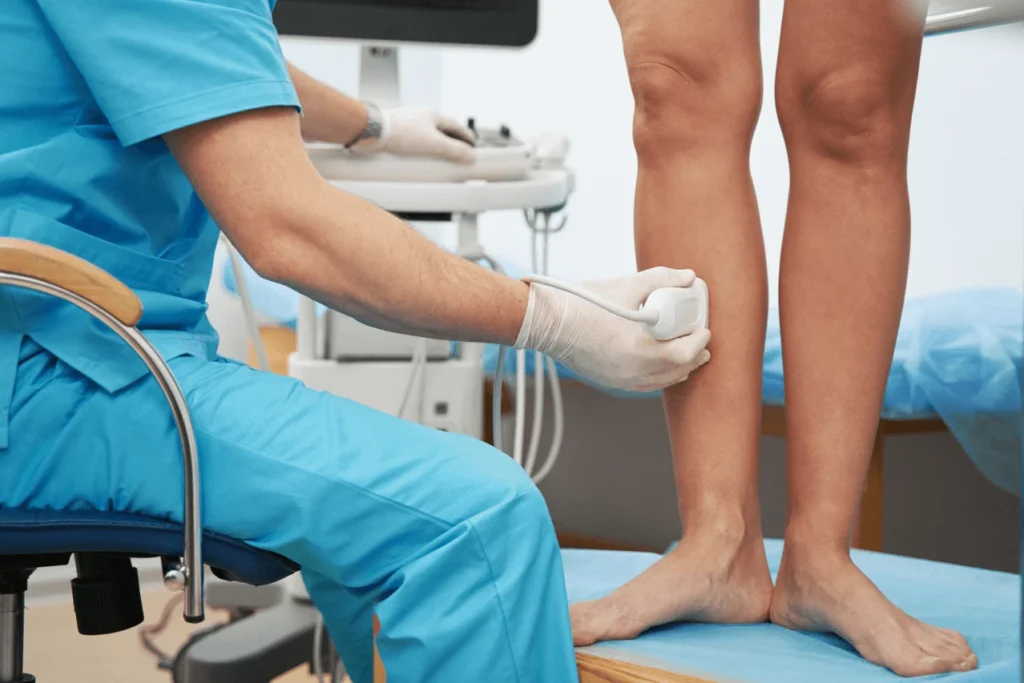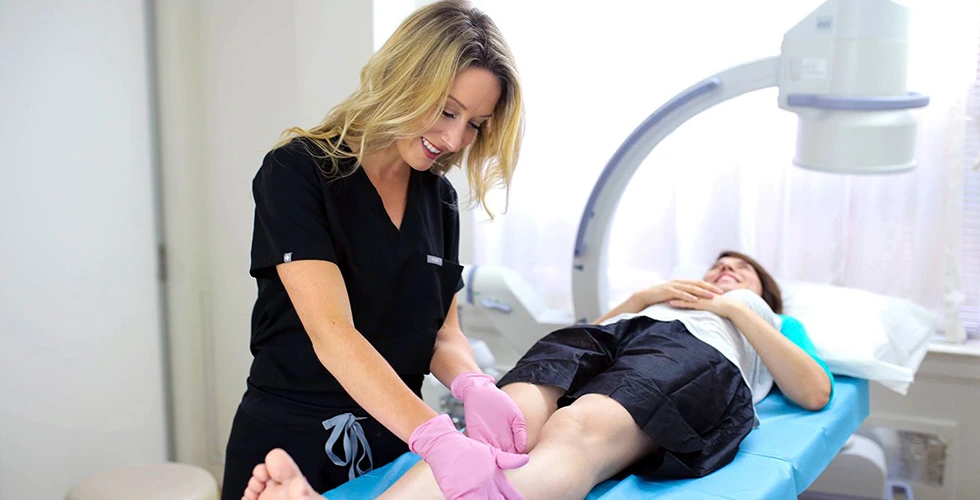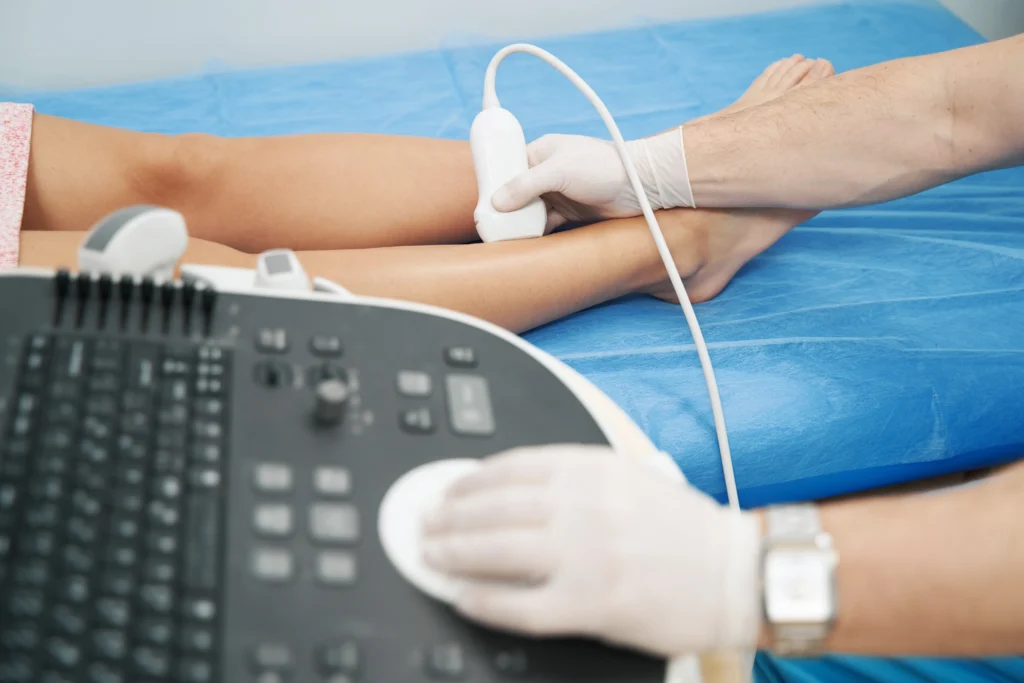What is the best treatment for varicose veins?
Varicose veins are enlarged, twisted veins that can be blue, red, or flesh-colored. They most often occur in the legs and can cause pain, heaviness, and aching. Varicose veins are a common condition, affecting one-third of all adults. There are a number of different treatments for varicose veins, ranging from conservative treatments to minimally-invasive procedures.
Radiofrequency ablation and laser ablation are two minimally-invasive procedures that can be used to treat varicose veins. These procedures involve using heat to destroy the vein. Venaseal is a minimally-invasive procedure that involves sealing the vein with a medical adhesive. Ambulatory phlebectomy is a minimally-invasive procedure that involves removing the vein through small incisions in the skin.
Conservative treatments for varicose veins include wearing compression stockings, elevating the legs, and exercising. However, conservative treatments can only alleviate the symptoms of chronic venous insufficiency, the root cause of varicose veins, and reduce some of the discomfort. They can’t treat underlying vein disease, so they’re not an alternative to minimally invasive treatments for varicose veins.
The best treatment for varicose veins depends on the individual. Our spider vein and varicose vein clinic in Maryland specializes in cutting-edge, minimally invasive varicose vein treatments. Our board-certified vein doctors carefully diagnose the root cause of varicose veins, study your symptoms, and curate personalized treatment plans for you. Our considered approach to vein care ensures optimal results.
You can find our vein clinic in Maryland at 10215 Fernwood Rd, Suite 301, Bethesda. If you’re in or around the DC Metro Area, you can find our vein clinic outside Washington, DC, in Silver Spring. Please schedule an appointment to explore your minimally invasive varicose vein treatment options.

Can I try homeopathy for varicose veins in legs?
While some people swear by homeopathy as a treatment for varicose veins, the fact is that there is no scientific evidence to support its use. In fact, several studies have shown that homeopathic treatments are no more effective than placebo in treating varicose veins. Homeopathic remedies are not regulated by the FDA, so there is no way to know if they are safe or effective. And they are often expensive and not covered by most insurance plans.
If you are considering a treatment for varicose veins, be sure to discuss all of your options with your doctor. Minimally invasive procedures, such as endovenous laser treatment, ambulatory phlebectomy, and sclerotherapy, are safe and effective and are covered by most insurance plans. Most importantly, minimally invasive varicose vein treatments address the root cause of your vein problems and improve blood circulation to the heart, thus ensuring long-lasting relief.
Do varicose veins cause high blood pressure?
Do varicose veins cause high blood pressure? That’s a good question. And unfortunately, there isn’t a straightforward answer. While there isn’t a direct connection between varicose veins and high blood pressure, they can be related.
Here’s how: Varicose veins are caused by weak or damaged valves in your veins. These valves are responsible for keeping blood flowing in the right direction—toward your heart. When they don’t work properly, blood can flow backward and pool in your veins. This can cause the veins to enlarge and become twisted and dilated.
The enlarged veins are much more susceptible to the effects of gravity, so they’re more likely to bulge and become visible. In addition to being unsightly, varicose veins can cause pain, swelling, and cramping. The pain and swelling associated with varicose veins can lead to secondary hypertension or high blood pressure that’s caused by another condition.
Furthermore, varicose veins are usually symptomatic of an underlying circulatory disorder known as chronic venous insufficiency (CVI). CVI occurs when the veins in your legs are not able to pump blood efficiently back to your heart. This can cause the pooling of blood in the legs and an increase in blood pressure. CVI is a serious condition that can also lead to complications like ulcers, blood clots, and even heart failure.
Does high blood pressure cause varicose veins?
While the exact cause of varicose veins is unknown, they are thought to be caused by a combination of factors, including heredity, pregnancy, and obesity. High blood pressure is not a direct cause of varicose veins, but it can contribute to the condition. That’s because high blood pressure can damage the valves in your veins that are responsible for keeping blood flowing in the right direction.
When these valves are damaged, blood can start to pool in your veins, causing them to widen and become varicose. If you have high blood pressure and are concerned about developing varicose veins, there are some things you can do to reduce your risk.
- Maintain a healthy weight.
- Exercise regularly.
- Wear loose-fitting clothing.
- Avoid sitting or standing for long periods of time.
Should I get my varicose veins treated?
If you have varicose veins, you may be wondering whether or not you should get them treated. There are a few things to consider when making this decision.
- First, varicose veins can be unsightly. If you are self-conscious about the way they look, treatment may be a good option for you.
- Second, varicose veins can cause pain and discomfort. If your veins are causing you pain or making it difficult to get around, treatment may be a good option for you.
- Third, varicose veins can lead to more serious health problems. If you are at risk of developing other health problems because of your varicose veins, treatment may be a good option for you.
- Fourth, varicose veins are usually caused by chronic venous insufficiency, a medical condition that can eventually lead to leg ulcers, deep vein thrombosis, and other complications. If you have the signs and symptoms of vein disease, you need varicose vein treatments.
- Fifth, varicose veins don’t go away on their own. Varicose vein treatments are essential.
Don’t ignore your symptoms.
At Vein Treatment Clinic, we’re here for Maryland patients with expert vein doctors and convenient locations close to home.
Whether you’re in Bethesda, Bowie, or Maple Lawn, you’ll find advanced care for spider veins, varicose veins, and chronic venous insufficiency at our clinics.
Patients across Maryland trust our Ivy League–trained, board-certified specialists for minimally invasive treatments that improve circulation, relieve pain, and restore confidence. In Maryland, our team includes Dr. Kamran Saraf and Dr. Lisa Alford, two highly experienced vein experts dedicated to providing personalized care.
Book your consultation today at the clinic nearest you.





